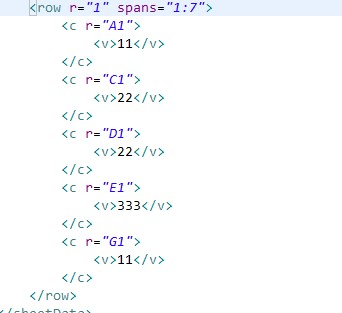黑马程序员_JAVA学习日记_JAVA中API中对象String类的补充
1:字符串(1)多个字符组成的一个序列,叫字符串。
生活中很多数据的描述都采用的是字符串的。而且我们还会对其进行操作。
所以,java就提供了这样的一个类供我们使用。
(2)创建字符串对象
A:String():无参构造
String s = new String();
B:String(byte[]bys):传一个字节数组作为参数
byte[] bys = {97,98,99,100,101};
C:String(byte[]bys,int index,int length):把字节数组的一部分转换成一个字符串
byte[] bys = {97,98,99,100,101};
String s = new String(bys,1,2);
D:String(char[] chs):传一个恩字符数组作为参数
char[] chs = {'a','b','c','d','e'};
String s = new String(chs);
E:String(char[] chs,int index,intlength):把字符数组的一部分转换成一个字符串
char[] chs = {'a','b','c','d','e'};
String s = new String(chs,1,2);
F:String(String str):把一个字符串传递过来作为参数
char[] chs = {'a','b','c','d','e'};
String s = new String(chs,1,2);
String ss = new String(s);
G:直接把字符串常量赋值给字符串引用对象
String s = "hello";
(3)面试题
A:请问String s = new String("hello");创建了几个对象。
两个。一个"hello"字符串对象,一个s对象。
B:请写出下面的结果
String s1 = newString("abc");
Strign s2 = newString("abc");
String s3 ="abc";
String s4 ="abc";
sop(s1==s2); //false
sop(s1==s3); //false
sop(s3==s4); //true
C:字符串对象一旦被创建就不能被改变。
指的是字符串常量值不改变。
(4)字符串中各种功能的方法
A:判断
boolean equals(Object anObject):判断两个字符串的内容是否相同
boolean equalsIgnoreCase(String anotherString):判断两个字符串的内容是否相同,不区分大小写
boolean contains(String s):判断一个字符串中是否包含另一个字符串
boolean endsWith(Stringsuffix):测试此字符串是否以指定的后缀结束
boolean startsWith(Stringsuffix):测试此字符串是否以指定的前缀开始
boolean isEmpty():测试字符串是否为空
B:获取
int length():返回此字符串的长度
char charAt(int index):返回指定索引处的 char值
int indexOf(int ch):返回指定字符在此字符串中第一次出现处的索引。
int indexOf(int ch, intfromIndex):返回在此字符串中第一次出现指定字符处的索引,从指定的索引开始搜索。
int indexOf(String str):返回指定子字符串在此字符串中第一次出现处的索引。
int indexOf(String str, intfromIndex):返回指定子字符串在此字符串中第一次出现处的索引,从指定的索引开始。
int lastIndexOf(int ch):返回指定
补充:软件开发 , Java ,




